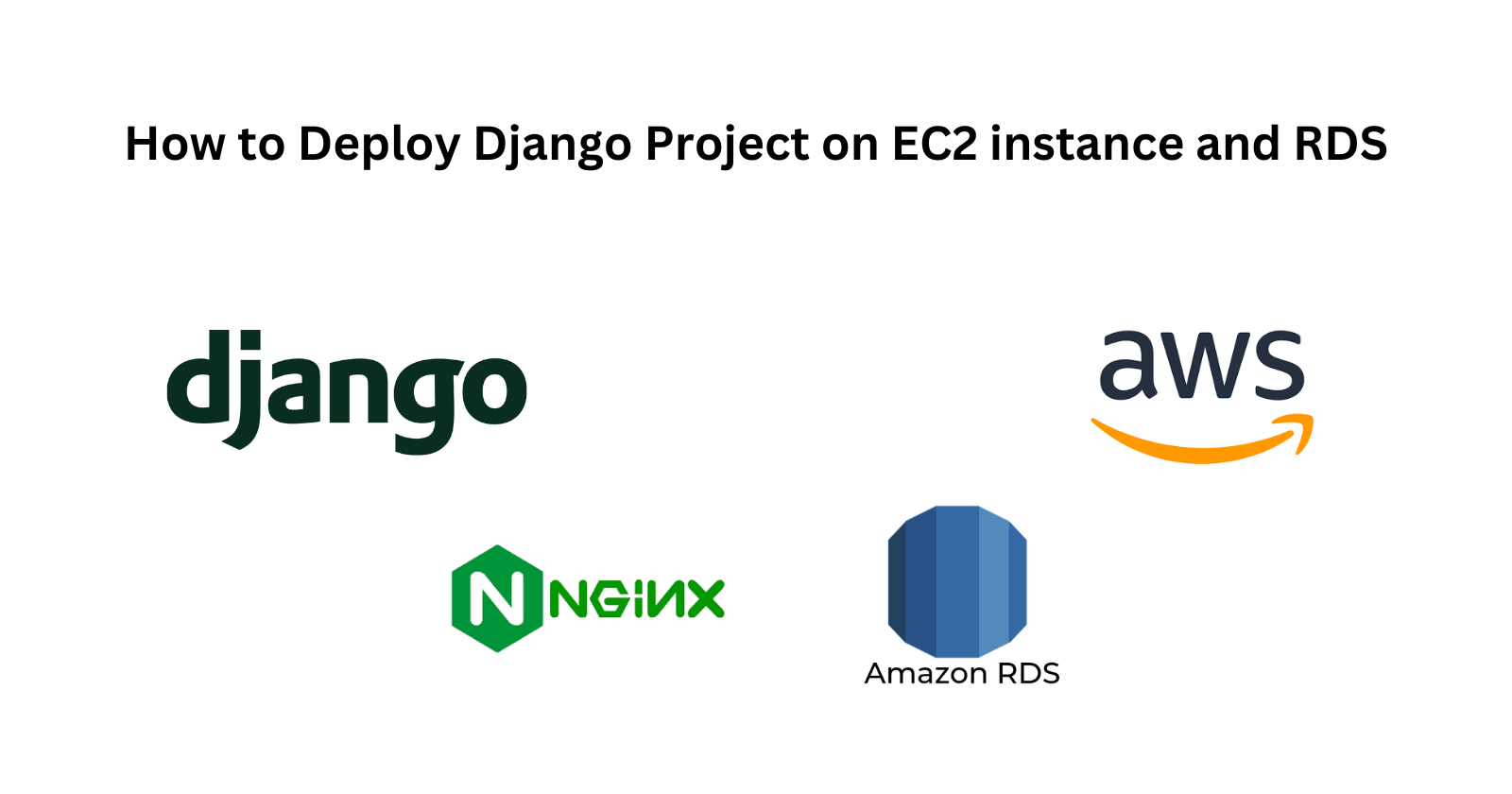Hosting a Django Application on AWS EC2: A Step-by-Step Guide
 Harsh Soni
Harsh SoniTable of contents

Introduction:
Are you ready to launch your Django application into the world? Hosting your app on AWS EC2 is a powerful solution that ensures scalability and performance. In this guide, I'll walk you through the process of deploying your Django app on an EC2 instance, keeping it simple and beginner-friendly.
Step-by-Step Guide to Hosting Django on EC2
Step 1: Create an EC2 Instance
Head over to AWS EC2 and spin up a new instance. Choose the Ubuntu AMI, configure your instance type, security groups, and launch your virtual server.
Step 2: SSH into the EC2 Instance
Access your instance securely using SSH:
ssh -i your_key.pem ubuntu@your_ec2_public_ip
Once connected, run:
sudo apt-get update -y && sudo apt-get upgrade -y
to ensure your instance is up-to-date.
Step 3: Set Up Your Environment
- Clone your Django application repository:
git clone your_repo_url
- Install Python's package manager, pip:
sudo apt install python3-pip
- Install the virtual environment module:
sudo apt install python3.12-venv
- Create a virtual environment:
python3 -m venv your_env_name
- Activate your virtual environment:
source your_env_name/bin/activate
- Install your app's dependencies:
pip install -r requirements.txt
Step 4: Database and Migrations
Set up a PostgreSQL database on AWS RDS, configure inbound rules in your EC2 security group, and add the details to your .env file. Then, run:
python3 manage.py makemigrations
python3 manage.py migrate
Step 5: Install and Configure Nginx
- Install Nginx:
sudo apt install nginx -y
- Enable and start Nginx:
sudo systemctl enable nginx
sudo systemctl start nginx
- Configure Nginx by creating a new file:
sudo nano /etc/nginx/sites-available/your_project
Paste this config:
server {
listen 80;
server_name your_domain_or_public_ip;
location / {
proxy_pass http://127.0.0.1:8000;
proxy_set_header Host $host;
proxy_set_header X-Real-IP $remote_addr;
proxy_set_header X-Forwarded-For $proxy_add_x_forwarded_for;
}
location /static/ {
alias /path/to/static/files/;
}
location /media/ {
alias /path/to/media/files/;
}
}
- Enable your configuration:
sudo ln -s /etc/nginx/sites-available/your_project /etc/nginx/sites-enabled/
sudo nginx -t
sudo systemctl restart nginx
Step 6: Serve Static Files on S3
Set up an S3 bucket to store your static and media files. Run this command to collect static files:
python3 manage.py collectstatic
Step 7: Set Up Gunicorn
Install Gunicorn:
pip install gunicorn
Serve your app:
gunicorn --bind 0.0.0.0:8000 your_project.wsgi:application
Step 8: Update EC2 Inbound Rules
Add your application’s port in AWS EC2 inbound rules to ensure traffic is allowed.
Step 9: Access Your Site
Visit your EC2 instance's public IP in the browser, and your Django application is live!
Conclusion:
Hosting your Django application on EC2 may seem like a daunting task at first, but with this simple guide, you’re set for success. Scale as you grow, experiment with AWS's vast offerings, and enjoy the limitless possibilities of cloud hosting.
If this guide helped you, share it with your friends and fellow developers! Have questions? Drop a comment below, and I'll be happy to help.
Subscribe to my newsletter
Read articles from Harsh Soni directly inside your inbox. Subscribe to the newsletter, and don't miss out.
Written by

Harsh Soni
Harsh Soni
👋 Hello! I'm Harsh, a DevOps enthusiast driven by a passion for continuous learning and innovation. With hands-on experience across cloud platforms, infrastructure tools, and programming languages, I'm committed to creating scalable, automated, and efficient solutions. Let’s connect, share knowledge, and build amazing things together! SKILLS: 🔹Languages & Runtimes: Python, C#, Shell Scripting, YAML 🔹Cloud Expertise: AWS (proficient in EC2, ELB, EBS, S3, VPC, Route53, SES, SNS, CloudFormation, CloudWatch) 🔹Infrastructure & DevOps Tools: Docker, Terraform, AWS CloudFormation 🔹Development & CI/CD: Linux, Git, GitHub Actions, Jenkins, Jira, GitLab (beginner), AWS DevOps 🔹Web Development: HTML, CSS, Bootstrap, .NET, Python, SQL Why Connect with Me? I'm a detail-oriented professional with strong communication skills, always ready to tackle complex problems with a positive mindset. Whether you’re here to network or explore potential collaborations, feel free to reach out. Let’s grow together in the DevOps journey! 📧 Contact Me: harshsoni6011@gmail.com